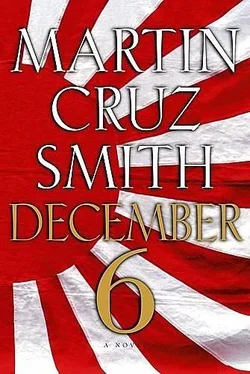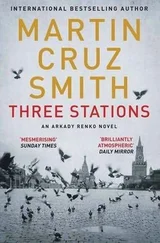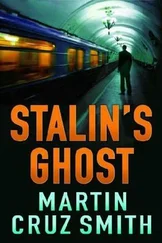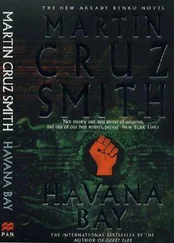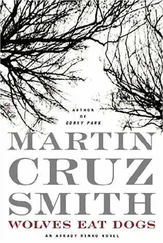Harry lived for Saturdays between shows when he, Kato and Oharu walked around Asakusa like the royalty of a raffish kingdom. Asakusa stood for pleasure, for theaters, music halls, ballrooms, tearooms, licensed and unlicensed women. Everyone could afford something in Asakusa. And everyone, of course, admired Oharu in her pillbox hat, white gloves and long French dress that slithered over her like a snake. She had a dancer’s athletic body. Silk hugged her legs and slid across her body while she looked blandly out from under her painted brows.
Sometimes they would step outside Asakusa to a French patisserie in the Ginza to devour éclairs or visit the Tokyo Station Hotel, which was built into one of the station’s domes. The hotel had an elevator and a plush lobby with velvet chairs, but its greatest attraction was a wrought-iron balcony that ran around the inside of the dome below a crown of plaster eagles. Harry stood on one side of the balcony, Oharu on the other, and her merest whisper would bend around the dome to his ear as if she perched on his shoulder. Once they went to Hibiya Park for a concert of modan jazu, modern jazz. American Negroes played a brassy, speeded-up music before an audience both stupefied and curious. When the band left the stage, people reached with a total lack of self-consciousness to touch the skin of the musicians as if their color might rub off. There was a sense at the time of change and exhilaration. Japan had been on the winning side of the Great War. Fortunes were being made. The future was at hand, nowhere nearer than in Japan, the new great nation, and especially in Tokyo, the seat of the Son of Heaven. If anyone in this center of industry noticed Harry, they saw a pale, unusually round-eyed Japanese schoolboy with a typically shaved head, ratty sweater, knickers and clogs.
Kato noticed. “We have a real discovery, Oharu. He’s like an urchin out of Dickens, and he’s right here in the middle of Tokyo. He has a guardian who’s always drunk, so Harry gets the money orders and pays the bills. I’ve heard him on the telephone. Do you ever wonder how a boy his age buys sake? Harry calls the sake shop and, in the voice of a Japanese woman, says a boy, a gaijin, no less, will be by to pay and pick up the sake. That’s when Harry doesn’t out-and-out steal it. We may be rearing a monster, Oharu, you and I. I suspect so. I think our Harry has all the morals of a young wolf. The real question for me is, is he a monster with sensitivity. I can’t waste my time with someone who has no eye for color.”
On hot days, Kato, Harry and Oharu stayed in Asakusa and went to the movies. Asakusa boasted more theaters per square foot than anywhere else on earth. The three friends sat in the dark, eating dried fish with beer and watching Buster Keaton take pratfalls on the screen while, in the back of the theater, a fan blew cool air from a block of ice.
At all foreign films a Movie Man sat onstage to translate the dialogue titles and what the audience was seeing. “Now Buster is running after the train. Now the train has turned around, oh, now the train is after him. Puff, puff, puff! Puff, puff, puff! He calls out to Mary, ‘Save me! Save me!’ Mary calls, ‘Run, Buster, run!’”
“Have you noticed,” Kato would inquire loudly of all the nearby viewers, “that, according to the Movie Man, the heroine in American movies is always called Mary. Is this likely? Don’t they have any other names in America? Why is the villain always named Robert?”
“Kato is an expert on villainy,” Oharu said to Harry. “He says an artist has to try every vice.”
“In Paris we drank green absinthe and smoked hashish,” Kato said. “It was the happiest time of my life.”
Three rows ahead was the dancer Harry had seen his first day backstage at the music hall, the girl who changed with such naked cool from ballerina to majorette. Despite the dark he saw every detail, the wavy perm of her hair, a hat that was not much more than a feather, the shadow of her neck, her ear like a curled finger beckoning him, although she had never spoken to him other than to send him for cigarettes.
Kato followed Harry’s attention. “You like little Chizuko? Too bad, it looks like she already has an admirer.”
The admirer was an army officer. Harry immediately cast for explanations: father, uncle, family friend.
“Chizuko’s not for you,” Oharu whispered.
“Chizuko could be perfect for him,” Kato said. “A playmate his own age, inventive, full of energy.”
“Leave him alone,” Oharu said.
“I’m sure something can be arranged,” said Kato. Oharu pinched his arm.
Afterward they took in the theater of the streets. Kato taught Harry to appreciate the storyteller with his slide show and never-changing tales, the candy maker who turned and tugged rice dough into cats and mice, the publicity bands who banged through the alleys with saxophones, drums and spinning umbrellas to sell soap, seltzer, cigarettes. The twenties were a loud, bright time of modern girls-mogas-who worked at new telephone exchanges, sold French perfumes in department stores, punched tickets on buses. Fashion was war. On one corner, a corps of Salvation Army uniformed like majorettes would shake tambourines and sing “Rock of Ages” while, from the next corner, the Buddhist Salvation Army in saffron robes tried to drown them out with bells and chants. No one knew how the next social advance would take place. In a Ginza department-store fire, salesgirls burned to death rather than leap down to nets and embarrass themselves. Immediately a law passed requiring salesgirls to wear panties, and two thousand years of fashion changed. There was, as Kato pointed out, nothing more beautiful than a kimono. A woman in a hand-painted kimono and obi was wrapped in a work of art. Western fashion was drab by comparison, but as color leached out of modern clothes, it spread into billboards and movie posters, matchboxes and postcards, race cars and airplane banners. And, of course, each word, each character in every sign or delivery boy’s jacket was a picture. Every street was a flood of images.
Kato lived in the Ginza above a bookstore in rooms that he said were very French, very art nouveau. Harry didn’t know what France or nouveau was like, but he didn’t doubt it was exactly like this. Armchairs seemed wrapped in vines. Sconces were glass flowers on stems of brass. Even the teapot looked alive enough to hop from the brazier. French posters of ballet and cancan dancers had places of honor on the walls. Japanese prints of a young woman teasing a cat, and a geisha offering her shoulder to a tattoo needle, were strewn on a table.
Kato said, “Hokusai and Yoshitoshi, all the great Japanese artists, were inspirations for Degas and Toulouse-Lautrec. Modern art is Japanese art through French eyes.”
The lecture was wasted on Harry. He much preferred the simple lines and secret messages of the Japanese prints. How the girl innocently batting with the cat revealed the provocative nape of her neck cowled in red. How the geisha bit into a cloth to stifle pain the same way lovers stifled cries of ecstasy.
“Do you paint here, too?” Harry asked. He saw no easel, paints or canvas.
“Open your eyes.”
Harry noticed how Kato had positioned himself by the poster of a French cabaret, a line of cancan dancers with blue faces and red hair. In a corner, however, was the Japanese calligraphy of Kato’s name. The poster was an imitation.
“You did that?”
“Good, you aren’t totally blind. There’s hope for you yet, Harry. You help me deliver the prints on the table and we’ll meet Oharu and go to a Chinese restaurant. She loves Chinese food.”
Harry didn’t meet Kato’s customers. It was a warm day in May, and he was happy to go along and wait outside while the artist took prints, boxed and loosely wrapped in silk cloth, around town. The last delivery was to the museum in Ueno Park. Ueno Park was famous for its hills of cherry trees, although the flowers had passed and the branches, dark as patent leather, were going to green. What Harry liked about the park were its drunken rickshaw men, street magicians, beggars and “sparrows,” prostitutes who carried a ready rolled-up mat. Kato seemed to know each fire-eater, mendicant and whore.
Читать дальше
